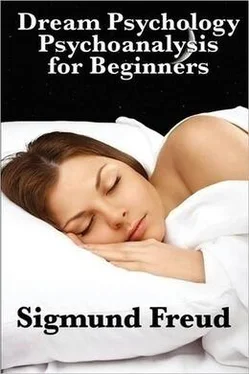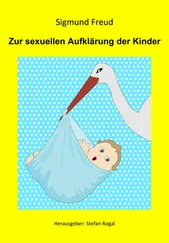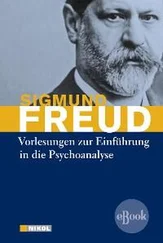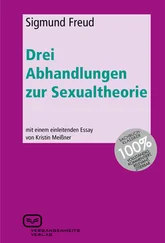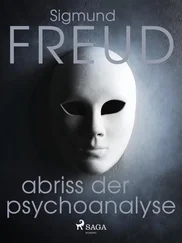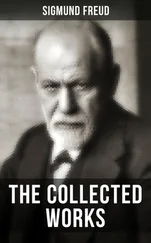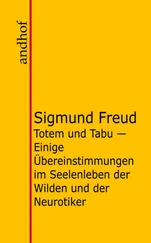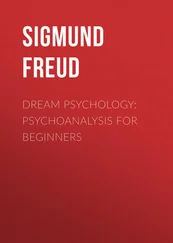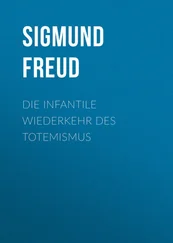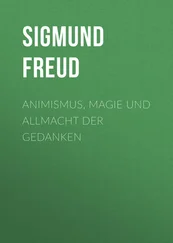Sigmund Freud - Dream Psychology
Здесь есть возможность читать онлайн «Sigmund Freud - Dream Psychology» весь текст электронной книги совершенно бесплатно (целиком полную версию без сокращений). В некоторых случаях можно слушать аудио, скачать через торрент в формате fb2 и присутствует краткое содержание. Год выпуска: 2014, Издательство: epubBooks Classics, Жанр: Психология, на английском языке. Описание произведения, (предисловие) а так же отзывы посетителей доступны на портале библиотеки ЛибКат.
- Название:Dream Psychology
- Автор:
- Издательство:epubBooks Classics
- Жанр:
- Год:2014
- ISBN:нет данных
- Рейтинг книги:3 / 5. Голосов: 1
-
Избранное:Добавить в избранное
- Отзывы:
-
Ваша оценка:
- 60
- 1
- 2
- 3
- 4
- 5
Dream Psychology: краткое содержание, описание и аннотация
Предлагаем к чтению аннотацию, описание, краткое содержание или предисловие (зависит от того, что написал сам автор книги «Dream Psychology»). Если вы не нашли необходимую информацию о книге — напишите в комментариях, мы постараемся отыскать её.
Dream Psychology — читать онлайн бесплатно полную книгу (весь текст) целиком
Ниже представлен текст книги, разбитый по страницам. Система сохранения места последней прочитанной страницы, позволяет с удобством читать онлайн бесплатно книгу «Dream Psychology», без необходимости каждый раз заново искать на чём Вы остановились. Поставьте закладку, и сможете в любой момент перейти на страницу, на которой закончили чтение.
Интервал:
Закладка:
Through the dream–work the dream process now gains either sufficient intensity to attract consciousness to itself and arouse the foreconscious, which is quite independent of the time or profundity of sleep, or, its intensity being insufficient it must wait until it meets the attention which is set in motion immediately before awakening. Most dreams seem to operate with relatively slight psychic intensities, for they wait for the awakening. This, however, explains the fact that we regularly perceive something dreamt on being suddenly aroused from a sound sleep. Here, as well as in spontaneous awakening, the first glance strikes the perception content created by the dream–work, while the next strikes the one produced from without.
But of greater theoretical interest are those dreams which are capable of waking us in the midst of sleep. We must bear in mind the expediency elsewhere universally demonstrated, and ask ourselves why the dream or the unconscious wish has the power to disturb sleep, i.e. the fulfillment of the foreconscious wish. This is probably due to certain relations of energy into which we have no insight. If we possessed such insight we should probably find that the freedom given to the dream and the expenditure of a certain amount of detached attention represent for the dream an economy in energy, keeping in view the fact that the unconscious must be held in check at night just as during the day. We know from experience that the dream, even if it interrupts sleep, repeatedly during the same night, still remains compatible with sleep. We wake up for an instant, and immediately resume our sleep. It is like driving off a fly during sleep, we awake ad hoc , and when we resume our sleep we have removed the disturbance. As demonstrated by familiar examples from the sleep of wet nurses, etc., the fulfillment of the wish to sleep is quite compatible with the retention of a certain amount of attention in a given direction.
But we must here take cognizance of an objection that is based on a better knowledge of the unconscious processes. Although we have ourselves described the unconscious wishes as always active, we have, nevertheless, asserted that they are not sufficiently strong during the day to make themselves perceptible. But when we sleep, and the unconscious wish has shown its power to form a dream, and with it to awaken the foreconscious, why, then, does this power become exhausted after the dream has been taken cognizance of? Would it not seem more probable that the dream should continually renew itself, like the troublesome fly which, when driven away, takes pleasure in returning again and again? What justifies our assertion that the dream removes the disturbance of sleep?
That the unconscious wishes always remain active is quite true. They represent paths which are passable whenever a sum of excitement makes use of them. Moreover, a remarkable peculiarity of the unconscious processes is the fact that they remain indestructible. Nothing can be brought to an end in the unconscious; nothing can cease or be forgotten. This impression is most strongly gained in the study of the neuroses, especially of hysteria. The unconscious stream of thought which leads to the discharge through an attack becomes passable again as soon as there is an accumulation of a sufficient amount of excitement. The mortification brought on thirty years ago, after having gained access to the unconscious affective source, operates during all these thirty years like a recent one. Whenever its memory is touched, it is revived and shows itself to be supplied with the excitement which is discharged in a motor attack. It is just here that the office of psychotherapy begins, its task being to bring about adjustment and forgetfulness for the unconscious processes. Indeed, the fading of memories and the flagging of affects, which we are apt to take as self–evident and to explain as a primary influence of time on the psychic memories, are in reality secondary changes brought about by painstaking work. It is the foreconscious that accomplishes this work; and the only course to be pursued by psychotherapy is the subjugate the Unc, to the domination of the Forec.
There are, therefore, two exits for the individual unconscious emotional process. It is either left to itself, in which case it ultimately breaks through somewhere and secures for once a discharge for its excitation into motility; or it succumbs to the influence of the foreconscious, and its excitation becomes confined through this influence instead of being discharged. It is the latter process that occurs in the dream. Owing to the fact that it is directed by the conscious excitement, the energy from the Forec., which confronts the dream when grown to perception, restricts the unconscious excitement of the dream and renders it harmless as a disturbing factor. When the dreamer wakes up for a moment, he has actually chased away the fly that has threatened to disturb his sleep. We can now understand that it is really more expedient and economical to give full sway to the unconscious wish, and clear its way to regression so that it may form a dream, and then restrict and adjust this dream by means of a small expenditure of foreconscious labor, than to curb the unconscious throughout the entire period of sleep. We should, indeed, expect that the dream, even if it was not originally an expedient process, would have acquired some function in the play of forces of the psychic life. We now see what this function is. The dream has taken it upon itself to bring the liberated excitement of the Unc. back under the domination of the foreconscious; it thus affords relief for the excitement of the Unc. and acts as a safety–valve for the latter, and at the same time it insures the sleep of the foreconscious at a slight expenditure of the waking state. Like the other psychic formations of its group, the dream offers itself as a compromise serving simultaneously both systems by fulfilling both wishes in so far as they are compatible with each other. A glance at Robert's "elimination theory," will show that we must agree with this author in his main point, viz. in the determination of the function of the dream, though we differ from him in our hypotheses and in our treatment of the dream process.
The above qualification—in so far as the two wishes are compatible with each other—contains a suggestion that there may be cases in which the function of the dream suffers shipwreck. The dream process is in the first instance admitted as a wish–fulfillment of the unconscious, but if this tentative wish–fulfillment disturbs the foreconscious to such an extent that the latter can no longer maintain its rest, the dream then breaks the compromise and fails to perform the second part of its task. It is then at once broken off, and replaced by complete wakefulness. Here, too, it is not really the fault of the dream, if, while ordinarily the guardian of sleep, it is here compelled to appear as the disturber of sleep, nor should this cause us to entertain any doubts as to its efficacy. This is not the only case in the organism in which an otherwise efficacious arrangement became inefficacious and disturbing as soon as some element is changed in the conditions of its origin; the disturbance then serves at least the new purpose of announcing the change, and calling into play against it the means of adjustment of the organism. In this connection, I naturally bear in mind the case of the anxiety dream, and in order not to have the appearance of trying to exclude this testimony against the theory of wish–fulfillment wherever I encounter it, I will attempt an explanation of the anxiety dream, at least offering some suggestions.
That a psychic process developing anxiety may still be a wish–fulfillment has long ceased to impress us as a contradiction. We may explain this occurrence by the fact that the wish belongs to one system (the Unc.), while by the other system (the Forec.), this wish has been rejected and suppressed. The subjection of the Unc. by the Forec. is not complete even in perfect psychic health; the amount of this suppression shows the degree of our psychic normality. Neurotic symptoms show that there is a conflict between the two systems; the symptoms are the results of a compromise of this conflict, and they temporarily put an end to it. On the one hand, they afford the Unc. an outlet for the discharge of its excitement, and serve it as a sally port, while, on the other hand, they give the Forec. the capability of dominating the Unc. to some extent. It is highly instructive to consider, e.g. , the significance of any hysterical phobia or of an agoraphobia. Suppose a neurotic incapable of crossing the street alone, which we would justly call a "symptom." We attempt to remove this symptom by urging him to the action which he deems himself incapable of. The result will be an attack of anxiety, just as an attack of anxiety in the street has often been the cause of establishing an agoraphobia. We thus learn that the symptom has been constituted in order to guard against the outbreak of the anxiety. The phobia is thrown before the anxiety like a fortress on the frontier.
Читать дальшеИнтервал:
Закладка:
Похожие книги на «Dream Psychology»
Представляем Вашему вниманию похожие книги на «Dream Psychology» списком для выбора. Мы отобрали схожую по названию и смыслу литературу в надежде предоставить читателям больше вариантов отыскать новые, интересные, ещё непрочитанные произведения.
Обсуждение, отзывы о книге «Dream Psychology» и просто собственные мнения читателей. Оставьте ваши комментарии, напишите, что Вы думаете о произведении, его смысле или главных героях. Укажите что конкретно понравилось, а что нет, и почему Вы так считаете.
